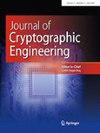针对车载FMCW雷达的欺骗攻击
IF 1.4
4区 计算机科学
Q2 COMPUTER SCIENCE, THEORY & METHODS
引用次数: 29
摘要
面对网络攻击,车内乘客的安全和保障是汽车行业的一个关键问题,特别是随着高级驾驶辅助系统的出现和自动驾驶汽车的巨大改进。这种平台使用各种传感器,包括摄像头、激光雷达和毫米波雷达。如果被攻击者利用,这些传感器本身可能存在潜在的安全隐患。本文提出了一种基于快速啁啾调制的汽车FMCW毫米波雷达攻击系统。我们的攻击系统使用单一的流氓雷达,能够欺骗受害者车辆同时测量的距离和速度,呈现与控制车辆运动的物理定律一致的虚幻测量值。攻击雷达通过控制时延来欺骗目标的距离,通过相位补偿和控制来欺骗目标的速度。在开发攻击理论之后,我们通过使用软件定义无线电构建基于硬件的概念验证系统来演示欺骗攻击。我们成功地演示了两种现实场景,在测量相干距离和速度的同时,受害者雷达被欺骗来检测幻像紧急停止或幻像加速。我们还讨论了几种可以减轻所描述的攻击的对策。本文章由计算机程序翻译,如有差异,请以英文原文为准。
Spoofing attacks against vehicular FMCW radar
The safety and security of the passengers in vehicles in the face of cyber attacks is a key concern in the automotive industry, especially with the emergence of the Advanced driver assistance systems and the vast improvement in autonomous vehicles. Such platforms use various sensors, including cameras, LiDAR and mmWave radar. These sensors themselves may present a potential security hazard if exploited by an attacker. In this paper we propose a system to attack an automotive FMCW mmWave radar, that uses fast chirp modulation. Using a single rogue radar, our attack system is capable of spoofing the distance and velocity measured by the victim vehicle simultaneously, presenting phantom measurements coherent with the laws of physics governing vehicle motion. The attacking radar controls the delay in order to spoof its distance, and uses phase compensation and control in order to spoof its velocity. After developing the attack theory, we demonstrate the spoofing attack by building a proof-of-concept hardware-based system, using a Software Defined Radio. We successfully demonstrate two real-world scenarios in which the victim radar is spoofed to detect either a phantom emergency stop or a phantom acceleration, while measuring coherent range and velocity. We also discuss several countermeasures that can mitigate the described attack.
求助全文
通过发布文献求助,成功后即可免费获取论文全文。
去求助
来源期刊

Journal of Cryptographic Engineering
COMPUTER SCIENCE, THEORY & METHODS-
CiteScore
4.70
自引率
0.00%
发文量
26
期刊介绍:
The Journal of Cryptographic Engineering (JCEN) presents high-quality scientific research on architectures, algorithms, techniques, tools, implementations and applications in cryptographic engineering, including cryptographic hardware, cryptographic embedded systems, side-channel attacks and countermeasures, and embedded security. JCEN serves the academic and corporate R&D community interested in cryptographic hardware and embedded security.JCEN publishes essential research on broad and varied topics including:Public-key cryptography, secret-key cryptography and post-quantum cryptographyCryptographic implementations include cryptographic processors, physical unclonable functions, true and deterministic random number generators, efficient software and hardware architecturesAttacks on implementations and their countermeasures, such as side-channel attacks, fault attacks, hardware tampering and reverse engineering techniquesSecurity evaluation of real-world cryptographic systems, formal methods and verification tools for secure embedded design that offer provable security, and metrics for measuring securityApplications of state-of-the-art cryptography, such as IoTs, RFIDs, IP protection, cyber-physical systems composed of analog and digital components, automotive security and trusted computing
 求助内容:
求助内容: 应助结果提醒方式:
应助结果提醒方式:


